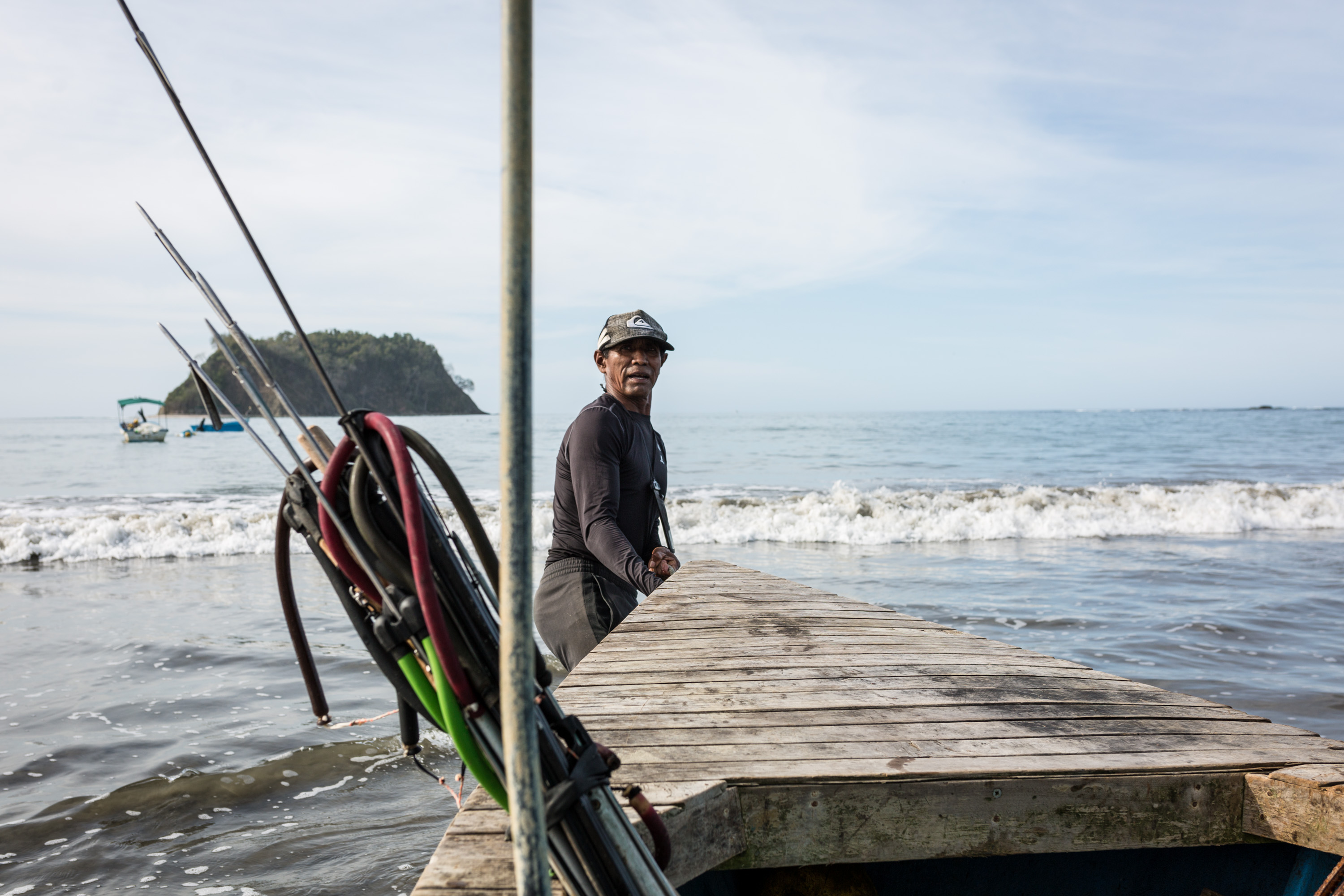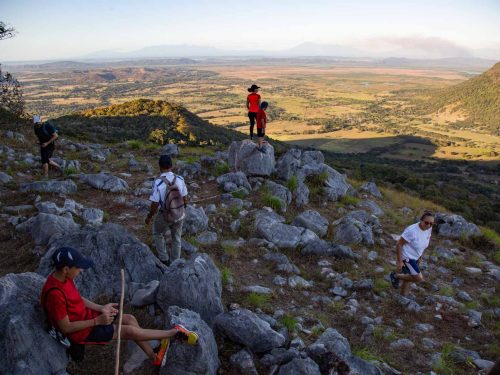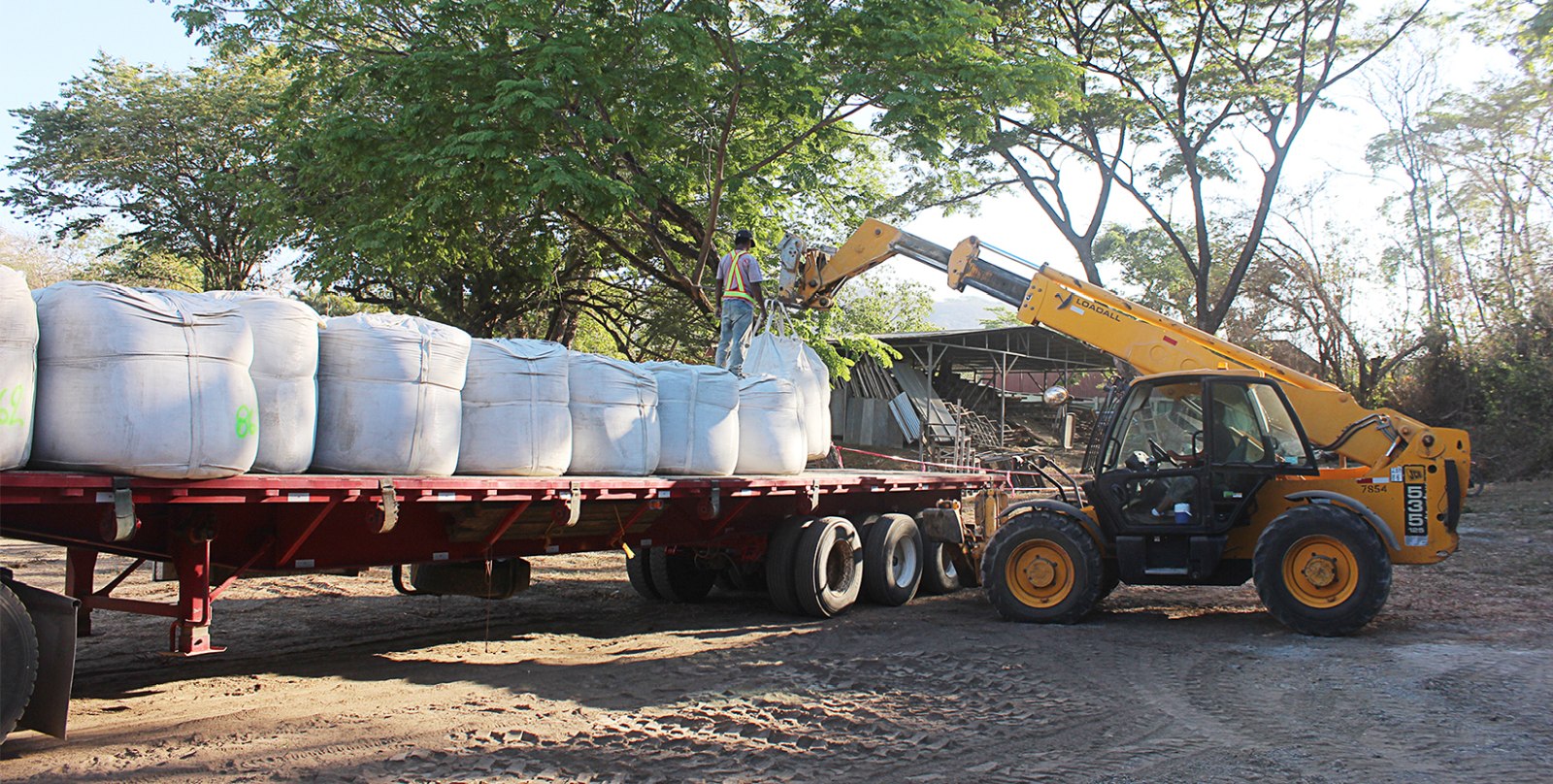
On a morning in mid-April, Sara* García was walking through La Cruz when she realized that a group at the Bilingual Experimental High School was helping several people fill out the Proteger Bond form.
She immediately approached for help.
“I am of the women who walks around looking for making a living as possible, working honestly, if they call me from a house, I will go clean,” says the 48-year-old cruceña to The Voice of Guanacaste. But they stopped calling her when the spread of the new coronavirus began in the country and, with it, the measures of social distancing.
Her son and partner are also unemployed. Before the pandemic, they worked respectively as a waiter in a bar and as a baggage handler on the Peñas Blancas border.
Since April 9, when the government launched the Proteger Bond, Sara wanted to ask for it but she was afraid of making a mistake in the process and that, therefore, she would lose the opportunity to access the economic benefit. Or that, without realizing it, she entered a wrong place and someone scammed her. Also, she didn’t trust to do so with telephone assistance from the line that the Mixed Institute of Social Aid (IMAS) enabled (800-000-4627).
Government officials repeatedly said that the municipal emergency commissions (which are coordinated by the municipalities) would establish the way to assist in person -and with adequate protocols to respect distancing- people who don’t have internet, an electronic device or the knowledge to fill out the Proteger Bond form.
In Guanacaste, only Abangares, Nandayure and Tilarán give appointments to support those who need it, but the rest of the municipalities do not, as confirmed by the outgoing and incoming mayors.
Other mayors say that there are public spaces with internet access, such as parks, or that relatives or neighbors could surely give them support. This is the case of Cañas, Carrillo and Bagaces.
“Physically, no person is served in this regard,” said the press officer of the Municipality of Carrillo, Fátima Sing. “We don’t either have an option for them to use a platform or have a connection. But the Internet is enabled in the parks, ” she added.
It seems that someone always helps them. Sons, daughters or someone helps them. People solve it or else they would be asking, “said the mayor of Bagaces, Eva Vázquez.
“We are telling them, find your child, find your grandson, find a family member who can help you fill out the form. In Cañas downtown we are indicating to the public that there are points enabled with free Wi-Fi, even if they are closed, they can get close and connect,” said the Cañas mayor, Luis Fernando Mendoza.
That was what Sergio Jirón did, an artisanal fisherman from Sámara who in the midst of the pandemic sells less fish because the restaurants are closed due to the closure of beaches and the drop in tourism. Her daughters helped him fill out the form and he has already received the deposit. “This money came to me from heaven but there are still many fishermen who have not received it,” he says.
Until May 5, a month after the government launched this financial assistance, IMAS enabled spaces and staff in its offices to help people apply. To request an appointment, you must call 800-000-4627.
But there are still deficiencies: in Guanacaste there is only one office located in Liberia.
“I thank God that in the canton of La Cruz there are people with good hearts who at least supported me,” says Sara García, neighbor of La Cruz. The mayor of that canton since May 1, Alonso Alán, was one of the members of the group that collaborated by filling out forms for a few days (before assuming his mandate). “We helped about 500 people in three communities in the canton,” he said.
Some readers of The Voice of Guanacaste told their experiences around the Proteger Bonus. For example, Andrés Bustamante, a professional in graphic design and web design, who helped an acquaintance fill out the form.
“I started to tell people around me that I thought they were being affected, that there was that government bond. I passed them the link and said that I could help them fill out the form. One of the boys told me ‘is that I have a very hard head and I couldn’t,’” says Bustamante. “He passed me all the info and I filled out the form for him.”
You understand that there are people who cannot fill out the form because there are different forms of illiteracy, such as digital. When they ask you to do something on the phone, and they ask you to upload a photo here and there,” he says. So far, the person he helped has only received confirmation that their case is under review.
Others said they received the notification that their cases were under review, but that they have not received any deposits.
The Labor Minister, Geannina Dinarte, said at the press conference on Tuesday, May 5 that the institutions review the applications not according to the order in which the forms arrive, but according to the economic situation reported by each person.
“There are a series of variables of social and economic nature that allow us to prioritize to whom the payments are directed, and we clearly move towards trying to reach the majority of people as soon as possible,” she added.
She also added that, so far, they have not notified the rejection of any case. “We are working (…) to give a more in-depth analysis that allows us to identify whether [a person] certainly does not correspond to the granting of the bond,” said Dinarte.
Sara, the neighbor from La Cruz, was deposited five days after completing the form. It is one of the 188,949 people across the country who have received it. According to Dinarte, 16,197 (8.5%) of the beneficiaries reside in Guanacaste.
This little help helped me a lot because I started buying food for the house, which was what interested me,” says Sara.
At the conference on Tuesday, May 5, Dinarte again invited various sectors, including local governments, to enable technological support services at its facilities.
The time to apply for this bond —which for the moment will be enabled for three months (April, May and June)— may be running out for many, especially in rural and coastal areas, who do not know how to complete it or where to ask for reliable help.
“Even I, who work every day surfing the internet had to read and reread the form to understand some steps,” says Bustamante, who collaborated with an acquaintance to fill out the form. “The government’s reaction is adequate and one appreciates that, from the bureaucracy, they take quick measures. But if we go into the details, the form should be much simpler, because it is too technical and only with that many people are excluded, “he adds.
The new mayor of La Cruz, Alonso Alán assured that he will consider some strategy to collaborate with people who need to complete the application. Santa Cruz Mayor, Jorge Arturo Alfaro said he did not know if the municipality had any measure, as it was on its second day of municipal government.
Others rule it out for now. “Due to a matter of crowds, we are not going to put someone to fill out forms,” said Nicoya Mayor Carlos Armando Martínez.
The Voice called several times the mayors of Liberia and Hojancha, but they didn’t answer.
*Sara is a fictitious name. We reserve the real name of the neighbor of La Cruz for security reasons.








Comments